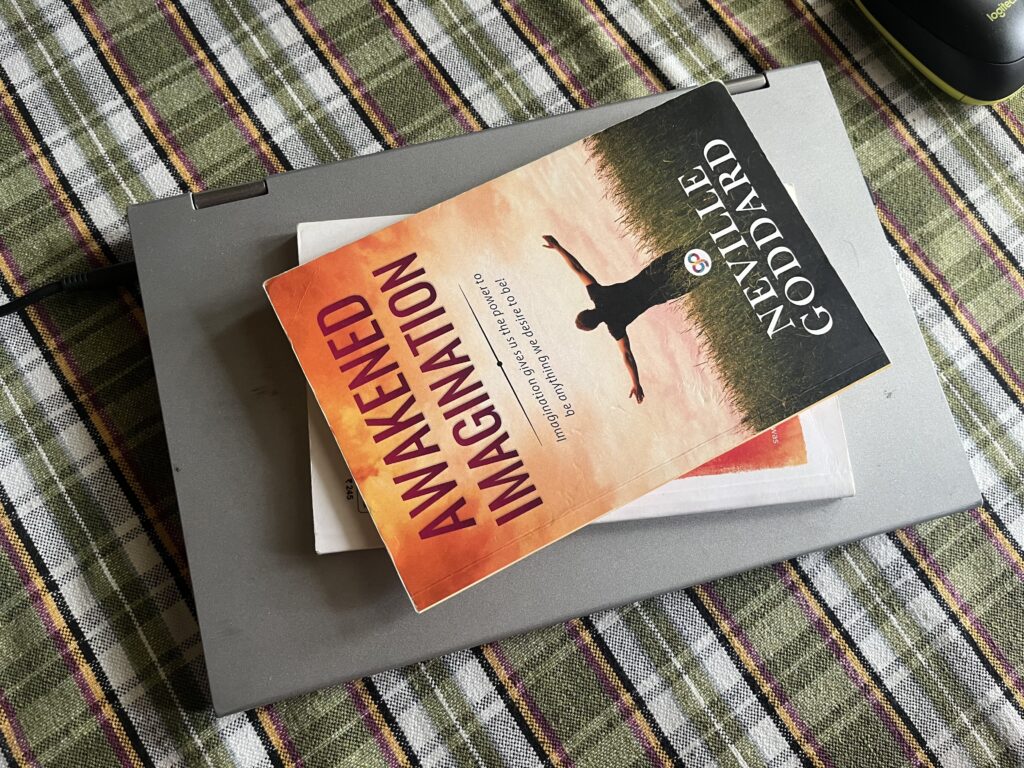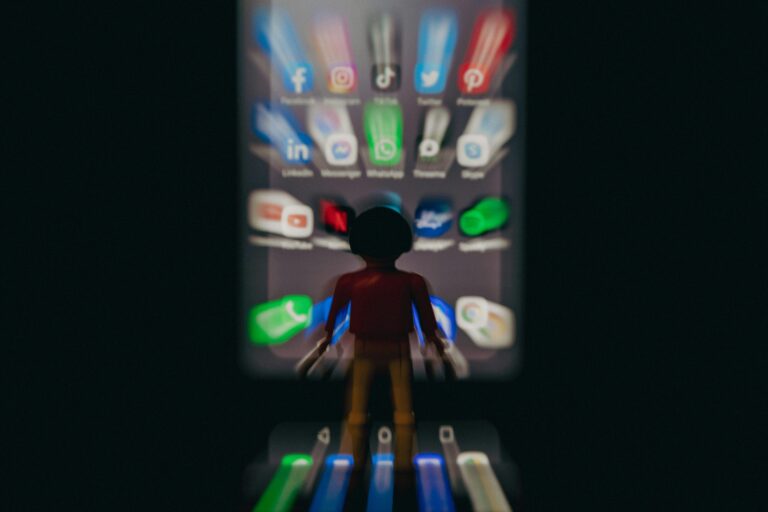
Social media has become an integral part of modern life. It has literally transformed the way we communicate, get to know things, and share our thoughts and ideas. However, many people are beginning to realize the impacts of social media on their lives. Some have crossed their limits on their social media and are wondering how to quit social media.
You may think of privacy, data security, or even addiction and other mental health issues related to using social media. The important part is that you realize that there is something wrong with the way you are using social media. Only when you acknowledge your problem, can you accept solutions to it.
I am one of those people who realized the negative impacts of overusing social media and began wondering how to stop social media addiction. I have successfully regained my control over social media usage now. I was spending over 6 hours on social media every day. I have not completely quit social media, but I have come out of the addiction. I have reclaimed my control over my social media usage.
You may have your own reasons for wanting to quit social media such as to improve your mental health, reduce your screen time, or simply take a break from the constant notifications and updates. The good news is that you don’t have to quit social media completely. You have to use it when it benefits you and should avoid it when it negatively affects you, i.e., you take control over your social media usage.
Contents
- 1 Let us explore the 10 ways you can quit social media and reclaim your control
- 1.1 1) Disable Notifications
- 1.2 2) Delete the Social Media Apps
- 1.3 3) Set Screen Time Limits
- 1.4 4) Set Screen Free Times/Screen Free Zones
- 1.5 5) Use Website Blockers
- 1.6 6) Find new hobbies
- 1.7 7) Read books
- 1.8 8) Join Local Clubs
- 1.9 9) Practice mindfulness
- 1.10 10) Inform Friends and Family
- 1.11 11) Seek professional help if you still don’t get how to quit social media.
1) Disable Notifications
Ding……… Do you immediately reach for your phone when you hear the notification tone?
The best way to use social media is to use it on your terms and have command over the way you use it. You don’t have to pick up your phone because somebody on your friend list took a selfie and found it to be cute.
Disabling push notifications on your phone is the first step towards reducing your social media usage. You will not be forced to open the app even when you do not think about opening it. It is one thing to get addicted to social media and not be able to resist your urges to open those apps, it is another thing to get conditioned by the apps themselves in the first place, which might later turn into an addiction.
2) Delete the Social Media Apps
Out of sight, out of mind. Deleting social media apps from your phone is one of the most effective ways to quit social media. When you make it difficult for you to access social media, you may tend to use them more frequently. Removing these apps from the phone or tablet could be the first step towards quitting social media.
Have you ever used Instagram on Safari? That is what I did after deleting the app. And it is so annoying how difficult it is to use the app. I can enjoy the content, however, the user experience is frustrating. For the first few weeks, I was thinking about downloading the app again. I did not spend as much time on Instagram in Safari as I would on the app. Those apps are obviously designed to be addictive.
3) Set Screen Time Limits
Do you find yourself scrolling away your life for hours at a time? Setting screen time limits on your phone can help reduce this excessive usage of social media apps.
iPhone users can go to Settings > Screen Time > App Limits to set time limits for specific apps.
Android users can go to Settings > Digital Wellbeing & Parental Controls > Dashboard to view app usage and set daily limits.
(Fun Fact: About two years ago, I set the screen time password for a friend of mine who used to be awake on social media till 5 am every night. They had 1 hour each for Instagram and Facebook. Since then, social media is not keeping them up at night.
However, they reported that they were scrolling on random places in their phone such as the photo gallery or even the settings menu. But then, they got accustomed to sleeping way before 5 am within a few weeks. They have not asked for the password yet.)
You will feel nice to set drastic screen time limits, but you might soon end up feeling the need to loosen a little bit. So it will be good to start with realistic goals when it comes to screen time limits. Gradually reducing the amount of time spent on social media can be more effective than trying to quit cold turkey.
4) Set Screen Free Times/Screen Free Zones
At your home, school, or work, if you have a place where you always sit with your phone and open social media immediately, you might have to change something about that.
These places could be anything your bed or couch at home, the cafeteria at work, or your bus/train commutes to the office/school. If opening social media is the first thing you do once you get comfortable in these places, then you are not in control.
You may mark some of these places as screen-free zones, such as your bed. If you feel the urge to open the app, you may put your phone far away from you or switch it off (if it is possible) when you are in the screen-free zone.
You may choose some times of the day such as lunch breaks or commuting as screen-free times. Consciously avoid opening social media during these times.
5) Use Website Blockers
Once you restrict the ways you access social media through social media apps, you might feel the urge to use social media through your browsers. Although the user experience will be dull, you may not be able to resist spending the same amount of time on the browser.
You can install website blockers as browser extensions or stand-alone applications. Popular website blockers include Cold Turkey, Freedom, and StayFocusd. These tools allow you to block specific websites, or even the entire internet, for a set period of time.
While website blockers can be a helpful tool in quitting social media, it’s still up to you to make the decision to quit and stick to your plan. However, website blockers can provide you with an extra layer of support and accountability.
6) Find new hobbies
People choose to use social media when they are free to do anything they want (and subsequently get addicted). But, if you are using social media when you are free to do literally anything (reasonable, of course), it means that you do not have anything better to do with that time.
Find hobbies that will be worth your while and better than spending some time on media. Once you succeed in reducing the time spent on social media, you will soon be left with a bunch of free time with nothing to spend on. If you don’t have anything to fill this time with, you might feel anxiety, and FOMO, and will want to go back to social media again.
However, being on social media itself could be a good hobby these days, if you know how to leverage it properly. You can gain skills specific to social media and use them to your advantage. But if you are a person who leverages the power of social media for your own good, you will probably not be reading this article.
There are many other hobbies you can explore, such as painting, learning to play a musical instrument, gardening, learning a new language, hiking, running, yoga, etc. The only thing you have to consider while choosing a hobby is that it should be interesting enough for you to stop you from going back to social media.
7) Read books
If you want to quit social media but still want to keep staring at something for entertainment, reading books could be a fun way to do it. Seriously, if you enjoy reading (and like me, you have more than 50 books you have bought hoping to read them one day), you should carry any book that interests you in your bag all the time (keep it as close to the phone as possible).
If you are a reader, you will definitely open the book after ignoring it a few times. Based on what you do on social media, reading a book might be a more productive activity for you.

I would always keep a few books on top of my laptop after closing it (as shown in the image above). Whenever I feel the urge to open my laptop to watch YouTube videos (Yes, YouTube is social media too, and I Googled it so you don’t have to), I have to pick the book up, keep it aside, and then open my laptop. Probably, around 1 in 5 times, I would choose to read the book. Guess how many times I would have chosen that book if it was on the shelf.
8) Join Local Clubs
One of the main things social media does (or was designed to do) the best is to enable people to connect. You might meet new and interesting people on social media with whom you might share an interest or two. You can chat with them and get to know them better and become “friends”.
However, those connections may not be perfect all the time. It might give a sense of being connected when in reality, the connection could be as good as a connection with a TV character (you know who they are, you like them very much, but you may never get close to this character in real life).
Why don’t you actually do that thing? Connecting with people? Go to places where you know you can find people with similar interests as yours. If you like to ride motorcycles, try joining a local motorcycle club. After all, they are the best people in the world, and, I digress.
You don’t always have to join an actual “club” like a motorcycle club. You may join a gym, volunteer for a cause, or anywhere people come regularly to do a specific thing, Meeting with the same group of people over and over will give a sense of belonging and purpose. It can help you avoid feeling isolated or lonely. You can also develop new skills and interests, which can boost your confidence and self-esteem.
It may be a bit difficult, but if you can, find someone in your peer group who has already quit social media. Seeing and connecting with someone quitting/who has quit social media will reinforce your confidence in achieving the result.
9) Practice mindfulness
Once you succeed in restricting your social media usage considerably, you may focus on mindfulness to improve your mental health. Mindfulness is the practice of being present in the current moment. It is being fully engaged in the activity at hand in the current moment.
It can help you reduce stress, improve focus, increase your self-awareness, and increase your overall well-being. Being more self-aware will help you reduce the urge to check social media and break the habit of mindlessly scrolling through feeds.
Practice mindfulness is simply being present in the moment through activities such as meditation, yoga, walking, or cooking. You have to concentrate on the task at hand and not allow your mind to wander.
10) Inform Friends and Family
We all know people who have taken it as their life’s purpose to share memes regularly. Since you are reading this, there is a good chance that you might be one of those people. When you are making an active decision to quit social media, it is important to inform friends, family, your meme recipients your meme senders, and followers about your move. It might worry them to see a sudden shift in your social media activity.
Let them know that it is an active decision and there is nothing wrong. One of the ways to do this is to make a final post on your social media accounts, informing your friends and followers that you will no longer be active. You can thank them for their support and explain your reasons for quitting. You can also reach out to them directly, send a text message, or give them a call.
If your social media addiction is causing serious problems in your life and if you are not able to do anything about it, firstly breathe a sigh of relief. It is good that you are recognizing a potentially dangerous health hazard. Secondly, seek professional help ASAP.
A professional therapist could diagnose your situation and suggest better ways to quit social media. They will empower you to develop better-coping methods suitable for you.
It may not always be your fault for becoming addicted to social media. The very existence of those apps relies on you and me using them as much as possible, as often as possible, and as long as possible.
Remember, quitting social media may not be easy, but with the right methods, support, and professional help, you can reclaim your control of social media. You can use it whenever you want to and the choice will be yours.


